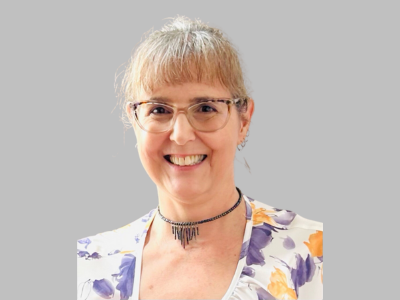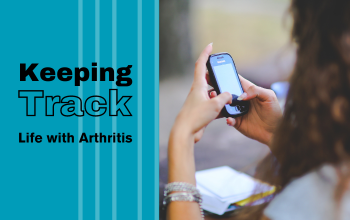Nadine Lalonde | The Importance of Advocating for Yourself
In 2004 when Nadine Lalonde started feeling unusually fatigued she knew something wasn’t right. As time went on, the symptoms worsened and there were full weeks where she could barely get out of bed. By 2008 she was almost convinced she had an immunity disorder and knew she needed to see a doctor and figure out what was happening.
“I had been to see my family doctor with a variety of symptoms through this time and I wondered if my doctor thought I was a hypochondriac,” Nadine jokes.
After running some tests, her doctor gave her an official diagnosis of Lupus and started her treatment. For the first time in 5 years, Nadine felt relief and, much to her surprise, she was happy.

“At one point I started to wonder if it was all in my head, but I kept thinking I have to trust my body and know that there is actually something wrong”, says Nadine. “Getting a diagnosis made me feel sane again, I could put a name to my symptoms and know I wasn’t inventing them.”
I have Lupus. Now what?
Once the relief washed away and the medications started to stabilize her symptoms, concerns started to surface. What did this diagnosis mean to her life? She felt isolated and feared that people would only see her as “someone who is always sick”. “You think about your coworkers wondering why you’re taking time off,” she remembers. “I either didn’t feel like I could be the mom I wanted to be, or was really pushing myself to meet that expectation.” Nadine also had to deal with the side effects of some of the medications initially prescribed. Some of them remain to this day, like an adrenal deficiency that was caused by prolonged treatment with prednisone. “The medication helped me with my brain fog and fatigue because at one point I was falling asleep everywhere – even while driving which was terrifying,” Nadine says. “It was good to feel like I could focus again.”
Finding Purpose
As her lupus symptoms improved, her adrenal insufficiency symptoms worsened. In 2018, Nadine had to leave work and go on disability. After decades of a career in recruiting and employment consultancy, she had an identity dilemma.
“The first thing you ask somebody in a casual conversation is ‘What do you do?’” She explains. “Disability carries a stigma, and when you are not working, you feel a lack of purpose and worth.”
During the COVID-19 pandemic, Nadine learned about a group of doctors working with rheumatology patient partners to understand more about their experience during those uncertain times. This was her first experience as a patient partner and what she had been looking for.
Nadine soon found Arthritis Research Canada and the Arthritis Patient Advisory Board (APAB) while looking for new groups where she could bring her knowledge and experiences. In March 2023, she joined APAB.
“My first experience as a patient partner had a lot of administrative tasks, but APAB is very different,” she says. “This group is very organized, we are included in research projects early on and are very involved with the research teams. Research is so important to becoming better informed about things such as medications and their side effects. I hope by sharing my experience, I can help others.”
Nadine’s lupus symptoms are currently under control, and she is back to swimming, walking regularly, and regaining her life.
“If I could give one piece of advice, it is to listen to your body. When something doesn’t feel right, don’t be afraid to talk to your doctor and advocate for yourself,” she insists. “Also, know that there is a wide range of specialists, like occupational therapists and social workers that can help you navigate an arthritis diagnosis in the best way possible. Arthritis Research Canada takes this approach with their research, it’s about all aspects of care to help you live well with arthritis.”
Is arthritis standing in your way? Check out our Arthritis Awareness Month
page here for helpful information to navigate the challenges of this disease.


























































